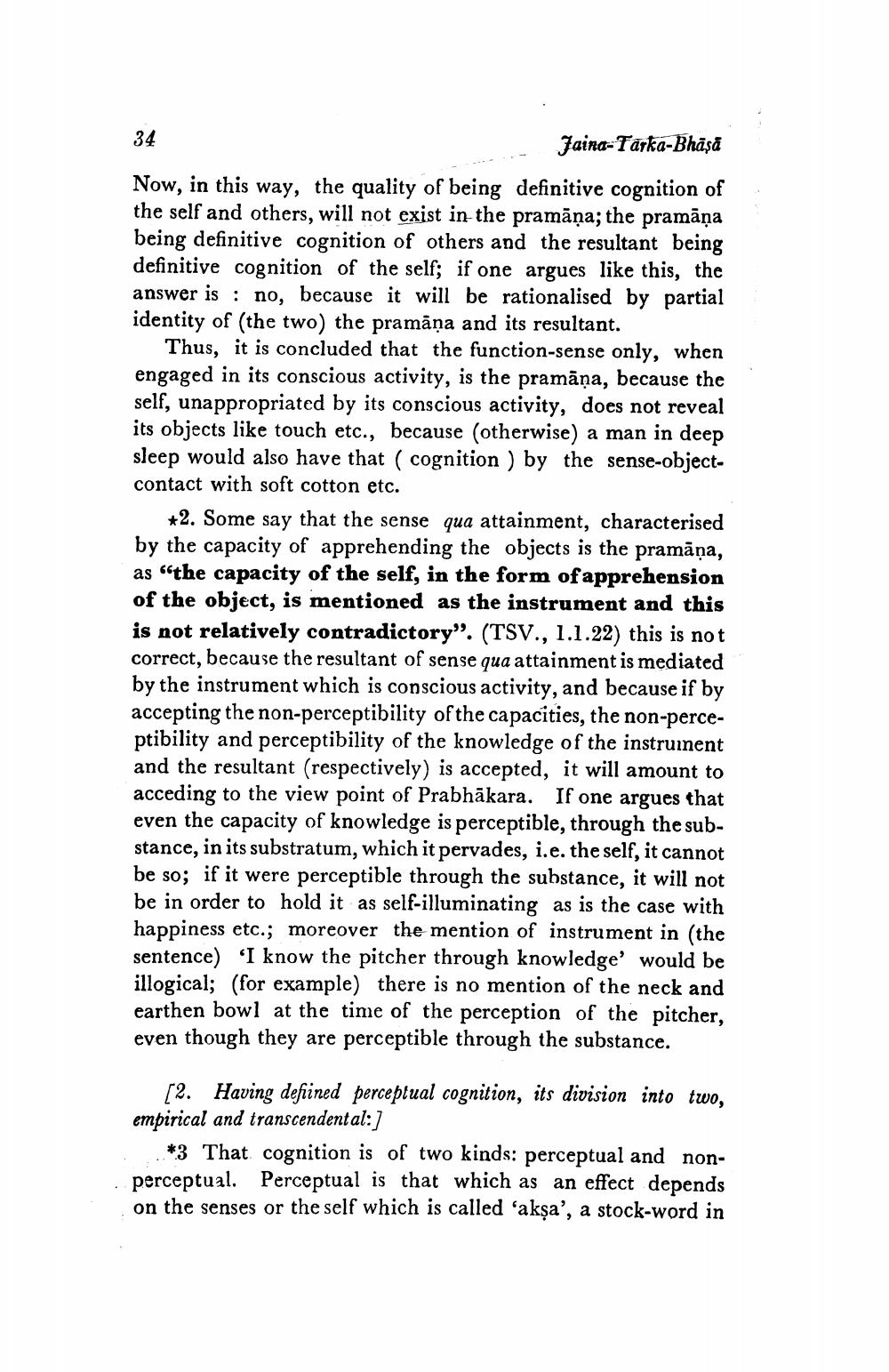________________
34
Jaina-Tarka-Bhāșă
Now, in this way, the quality of being definitive cognition of the self and others, will not exist in the pramāņa; the pramāņa being definitive cognition of others and the resultant being definitive cognition of the self; if one argues like this, the answer is : no, because it will be rationalised by partial identity of (the two) the pramāṇa and its resultant.
Thus, it is concluded that the function-sense only, when engaged in its conscious activity, is the pramāņa, because the self, unappropriated by its conscious activity, does not reveal its objects like touch etc., because (otherwise) a man in deep sleep would also have that ( cognition ) by the sense-objectcontact with soft cotton etc.
*2. Some say that the sense qua attainment, characterised by the capacity of apprehending the objects is the pramāņa, as the capacity of the self, in the form of apprehension of the object, is mentioned as the instrument and this is not relatively contradictory”. (TSV., 1.1.22) this is not correct, because the resultant of sense qua attainment is mediated by the instrument which is conscious activity, and because if by accepting the non-perceptibility of the capacities, the non-perceptibility and perceptibility of the knowledge of the instrument and the resultant (respectively) is accepted, it will amount to acceding to the view point of Prabhākara. If one argues that even the capacity of knowledge is perceptible, through the substance, in its substratum, which it pervades, i.e. the self, it cannot be so; if it were perceptible through the substance, it will not be in order to hold it as self-illuminating as is the case with happiness etc.; moreover the mention of instrument in the sentence) 'I know the pitcher through knowledge' would be illogical; (for example) there is no mention of the neck and earthen bowl at the time of the perception of the pitcher, even though they are perceptible through the substance.
[2. Having defined perceptual cognition, its division into two, empirical and transcendental:]
..*3 That cognition is of two kinds: perceptual and nonperceptual. Perceptual is that which as an effect depends on the senses or the self which is called 'akşa', a stock-word in




